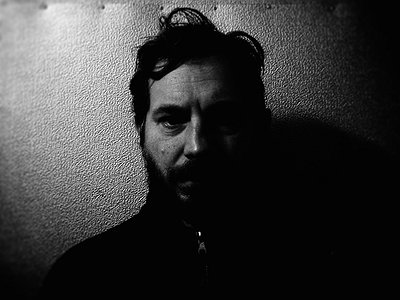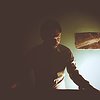Part 1.
Name: Martin Jenkins
Nationality: British
Occupation: Musician
Bands/Projects: Pye Corner Audio / Head Technician / The House in the Woods
Labels: More Than Human / Ecstatic / Ghost Box / Type / Dekorder
Musical Recommendations: Anthony Child’s (Surgeon) music has been with me for a long time, and he seems to constantly evolve. His latest output is amongst his best work I feel / The Vactrol Park EP on ESP Institute is a favourite of mine at the moment. Super warm slo-mo techno, beautifully produced.
When did you start writing/producing music - and what or who were your early passions and influences?
I suppose I first dipped my toe in the water when I bought a cassette 4-track machine nearly 25 years ago. I started messing around with a guitar, some BBC sound effect tapes and a load of fx pedals.
What do you personally consider to be the incisive moments in your artistic work and/or career?
I was lucky that, when I started working as a tape-op in a recording studio, I had access to equipment and also the privilege of learning from some great engineers and producers.
It certainly gave me a grounding in the technical aspects of composition and production.
What are currently your main compositional- and production-challenges?
The biggest challenge for me is simply finding sufficient time to work on music. The late nights start to take their toll after a while.
What do you usually start with when working on a new piece?
It could be anything from a clear idea for a track to simply hearing an inspiring sound or being struck by an interesting image. I tend to work fairly instinctively, as I rarely have the time to plan or strategise too deeply.
How strictly do you separate improvising and composing?
I don't. Many pieces are edited improvisations.
How do you see the relationship between sound, space and composition?
In electronic music I feel that often the medium is a large part of the message. That is to say the sonic aspect informs the composition massively. For me, the space aspect is not so important. I like to feel comfortable, but I'm used to working in a fairly confined space with a few essential pieces of equipment.
Do you feel it important that an audience is able to deduct the processes and ideas behind a work purely on the basis of the music? If so, how do you make them transparent?
If I'm honest, I hadn't given it a lot of thought. Now that you mention it though I’m not sure that transparency is always desirable in music. There's room for mystery and magic in any art form, the space for the listener/viewer to put their own interpretation onto it. From my own perspective, it's sometimes hard to turn off my analytical ears and engage purely as a listener so I find it refreshing when a song leaves me with absolutely no clue as how it was made. MBV's "Loveless" LP is my favourite example of that!






